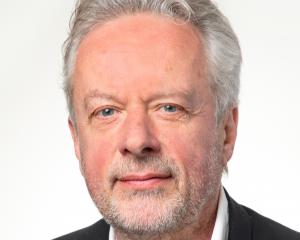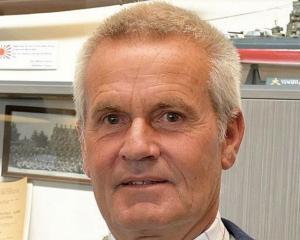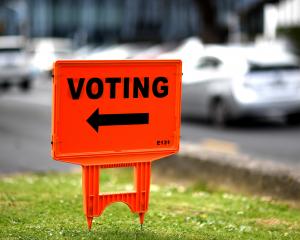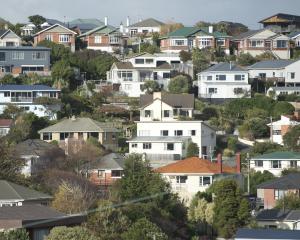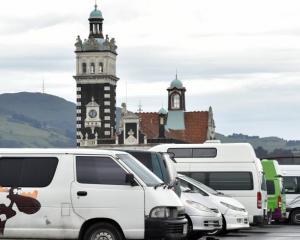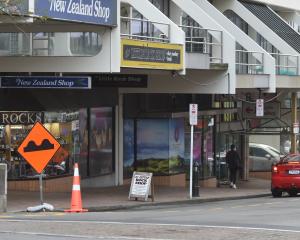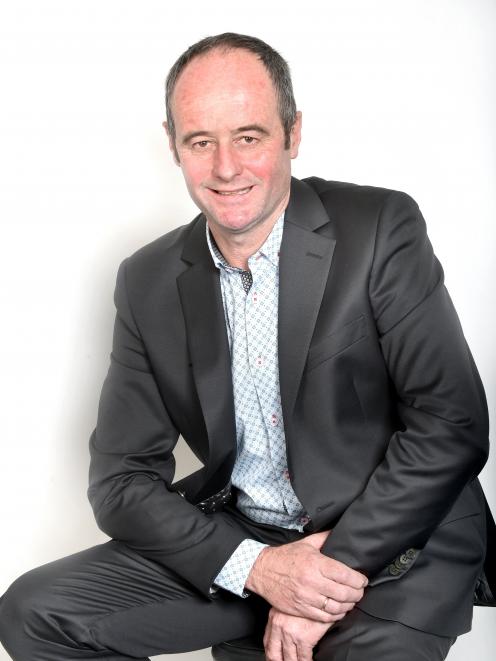
Jim O'Malley has returned to Dunedin after a 25-year stint in the United States and believes a city council should create an environment for growth then let that growth happen.
Mr O'Malley has a history of working for universities, businesses and corporations in the US, and says that experience leading a team will help him as mayor.
He says the Dunedin Hospital rebuild is one of the city's major issues, and believes as mayor he could influence the outcome, despite the facility being a government responsibility.
Why are you standing?
I feel the city is coming to a junction on quite important things, notably the hospital, and the amendment of the Local Government Act.
I think in that case what we need is a mayor who will stand up and defend the city in that environment. I think that I've got fairly good skills when it comes to doing that.
Why should people vote for you?
Primarily because they'll find me to be pragmatic, and I will listen. My background has been around taking in complex issues and coming out with solutions, which I think's very relevant to council.
What relevant experience do you have?
It would be probably my experience when I worked in large corporations in the States, where as the head of a drug development team I had to bring together people with quite different skill-sets to make a single product.
That required a lot of teamwork and a lot of understanding of goals and how to achieve goals. In addition, I had to take those programmes and describe them to people who have no scientific background who are making business decisions.
I think I'm pretty good at taking issues and then dealing with them, but also explaining them back to the public as to why and how we've made those decisions.
What do you see as the major issues this election?
The hospital, and obviously the other one is what happened in South Dunedin last year, and how to respond to that, and also to respond to the long-term implications of what happens if and when the sea comes up.
The hospital is run by the Government, not run by the council; what are you going to do about that?
One of the things the mayor can do - and I know some people have already mentioned Tim Shadbolt, but I think he's a good example for what he does for Invercargill - is you can act as a person who represents the city in a bigger argument that's outside the city itself.
I agree it is not a city council-run operation, but it is not right to say it is not a city-related amenity. If we lose the hospital status and it drops down, one of the things we lose is fourth-city status.
We still are the fourth main centre in my opinion, even though we're sixth in population. What I will do is go to the mayors of the other municipal councils.
Acknowledging this next [national] election is going to be very tight, no political party can afford to ignore us if we come forward and say to everybody, no matter what party you're in, tell your MP that you'll vote for another party unless we hear clearly this is going to be done properly, and we're involved in the decision-making process.
How would you deal with South Dunedin issues of flooding and climate change?
There's an immediate, intermediate and long-term response. Immediate is infrastructure maintenance, make sure that is running properly.
The next is we don't know the rate at which sea level will rise, but it will come up. We need to increase the pumping capacity and potentially look at building a 1m to 2m dyke to protect low-lying areas.
Portsmouth Dr is an obvious point, down to the Port Chalmers area. If the dunes at St Clair and St Kilda start to go, you are looking at the same again [dykes]. Ultimately we are facing a large capital investment.
It's either going to be in the form of flood protection, or it's going to involve raising the whole of South Dunedin, or it's going to involve moving people out of that area, which has implications because you're going to be changing the value of people's properties under their feet.
Before we come to that I would like us to get another 20 or 30 years down the track, because I don't want us to make a rash decision at this point.
What is Dunedin doing badly?
I don't think there's much that differentiates Dunedin from other cities.
Having come back to start a business here, I would encourage the red carpet scheme, which is now only for very large companies, to be handed to all companies coming in.
That's something they could do better, but in terms of doing badly, I chose Dunedin over any other city to return to.
What is Dunedin doing well?
As a city we're going through a great resurgence from when I was here as a student in the late '80s. You look at the warehouse, precinct as an example.
Do you have a vision for the city?
For the next short period of time we just keep going with what we're doing. I don't think councils can make a city more or less vibrant, what they can do is either wreck the environment or make a good environment to make that happen.
The council's job is to make sure it doesn't get in the way and enables growth.
Who did you vote for at last national election, and how would you describe your politics?
It took a long time to decide to vote Labour. I would describe myself as a disappointed Labour voter
How are you going about your campaigning and fundraising?
I'm trying, actually, to spend no money. I'm using a free website to get my web page out, and Facebook. I'm relying on interviews with the press, and going to all the public meetings.
Have you attended council meetings?
Yes, just sitting in the gallery.
Are you serious about your candidacy considering you are not on the council and have little name recognition?
When I first started I wasn't sure, and it was an issue of whether I would run for mayor. When I got into it, and I'm seeing the positions of the others, I'm dead serious about it now.



